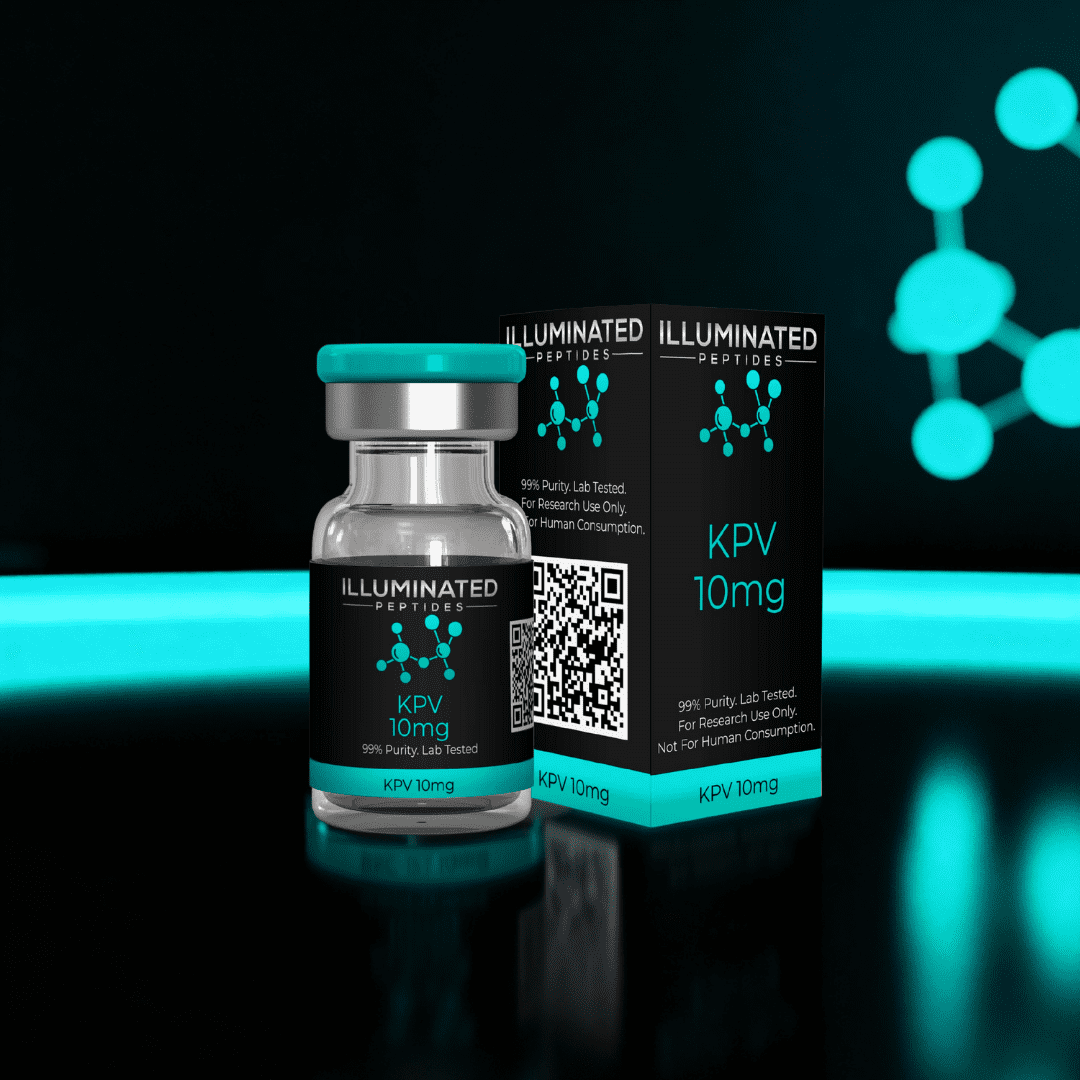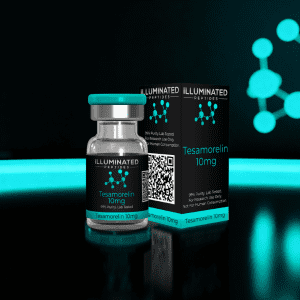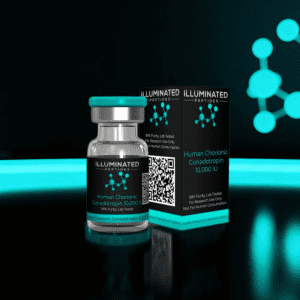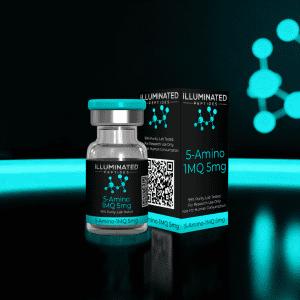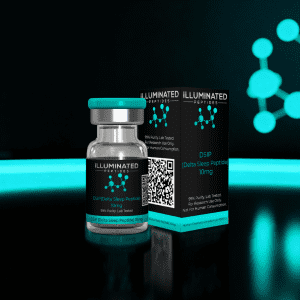Description
KPV
KPV (Ac-Lys-Pro-Val-NH₂) is a short peptide fragment derived from the larger α-Melanocyte Stimulating Hormone (α-MSH). It is widely studied for its potent anti-inflammatory properties and its ability to regulate immune responses in experimental models. Research suggests that KPV plays a protective role in maintaining intestinal barrier function and reducing oxidative stress. Its structural modifications, including acetylation and amidation, make it more stable and resistant to enzymatic breakdown. Because of these attributes, KPV has become a valuable focus of laboratory studies exploring inflammation, wound healing, and tissue repair.
KPV Structure
Sequence: Lys-Pro-Val
Molecular Formula: C18H34N5O4
Molecular Weight: 384.50 g/mol
PubChem CID: 16133897
CAS Number: 27210-23-5
KPV Research
Intestinal Inflammation
KPV Tripeptide (Ac-Lys-Pro-Val-NH₂) has been studied for its role in regulating intestinal inflammation, particularly in conditions such as inflammatory bowel disease (IBD). Research indicates that it can interact with inflammatory pathways by reducing cytokine activity, which plays a central role in driving tissue irritation and damage. This modulation of immune signaling suggests that KPV may help reduce the severity of inflammatory episodes within the digestive tract.
Another important observation is KPV’s apparent ability to support the integrity of the intestinal barrier. The gut lining is highly sensitive to inflammatory stress, and disruptions often lead to worsening symptoms in conditions like Crohn’s disease or ulcerative colitis. Studies suggest that KPV can strengthen epithelial function, helping the intestinal wall resist further breakdown and creating a healthier environment for recovery.
Because chronic gut inflammation is a major driver of long-term digestive health issues, KPV’s potential impact is seen as especially meaningful. By balancing immune activity without completely shutting down natural defenses, KPV offers a promising model for research into safer and more targeted peptide-based approaches to intestinal inflammation.
KPV as a General Anti-Inflammatory
Beyond gastrointestinal conditions, KPV has been shown to act as a general anti-inflammatory agent. It appears capable of suppressing pro-inflammatory mediators such as TNF-α and interleukins, which are often overexpressed in chronic immune-related conditions. This broad effect positions KPV as a peptide of interest for systemic inflammation, not just localized responses.
The peptide’s impact on oxidative stress is another factor that adds to its appeal. Inflammation often generates harmful free radicals that contribute to tissue breakdown. KPV research suggests it may reduce oxidative damage while also calming excessive immune signaling. This dual action could make KPV especially useful in exploring therapies where inflammation and oxidative stress work together to worsen disease progression.
Researchers are particularly interested in the fact that KPV does not appear to shut down the immune system entirely. Instead, it regulates and moderates the body’s response, offering the potential for fewer side effects compared to broader anti-inflammatory agents. This selectivity has made KPV a focus in studies seeking new approaches to inflammation-driven disorders.
Wound Healing
In wound-healing research, KPV has demonstrated the ability to promote faster recovery times by creating an environment more conducive to tissue repair. It achieves this by moderating inflammatory processes that, when uncontrolled, often delay proper healing. By reducing excessive inflammation while still allowing natural immune activity, KPV helps strike a balance critical for wound closure.
The peptide’s effect on microbial risk is another area of interest. Some studies suggest that peptides like KPV may reduce the risk of secondary infection at wound sites, indirectly improving healing outcomes. This protective influence can contribute to cleaner wound environments, allowing tissue regeneration to progress without interference.
Equally important is KPV’s role in promoting regeneration at the cellular level. Laboratory models indicate that KPV can encourage fibroblast activity, which is essential for rebuilding damaged tissue. This cellular stimulation, combined with inflammation control, makes KPV a promising peptide for research into more efficient wound-healing strategies.
Scar Formation
Scarring is a natural part of the healing process, but excessive or abnormal scar formation can impair both cosmetic and functional outcomes. Research into KPV suggests it may help reduce abnormal collagen deposition, which is often responsible for thickened or uneven scar tissue. By regulating the early stages of healing, the peptide may influence how scars form long-term.
Another contributing factor is KPV’s ability to limit chronic inflammation around the wound site. Inflammation that persists after the initial healing stage often leads to more pronounced scarring. By moderating this process, KPV may allow tissue remodeling to proceed in a more controlled and orderly fashion, reducing the risk of hypertrophic or keloid scars.
Researchers are also exploring the potential for KPV in post-surgical recovery, where minimizing visible scars is a priority. If further studies confirm its activity in reducing excessive scar formation, KPV could become an important model peptide in regenerative and cosmetic medicine research.
Versus Alpha-MSH
KPV is a naturally occurring fragment derived from alpha-melanocyte-stimulating hormone (α-MSH), a peptide well known for its wide-ranging anti-inflammatory properties. Research shows that even though KPV is a much smaller sequence, it retains many of α-MSH’s biological activities, making it a simpler yet effective option for study.
One advantage of KPV over full-length α-MSH is its structural simplicity. Smaller peptides are often easier to study, synthesize, and potentially apply in controlled environments. By retaining strong anti-inflammatory activity in a reduced form, KPV may serve as a more practical model for peptide-based therapies while avoiding some of the complexities tied to larger peptides.
Comparative studies suggest that while α-MSH has broader biological effects, KPV provides more targeted activity with potentially fewer side effects. This distinction highlights why researchers are focusing on KPV as a refined alternative that can deliver similar benefits with greater specificity
Summary
KPV Tripeptide (Ac-Lys-Pro-Val-NH₂) has emerged as a promising subject of research due to its potent anti-inflammatory activity and diverse biological effects. Studies highlight its ability to reduce cytokine signaling and protect the intestinal lining, making it particularly relevant in models of inflammatory bowel disease. By helping to maintain mucosal integrity and moderating immune responses, KPV shows potential for supporting gut health in ways that warrant deeper scientific exploration.

